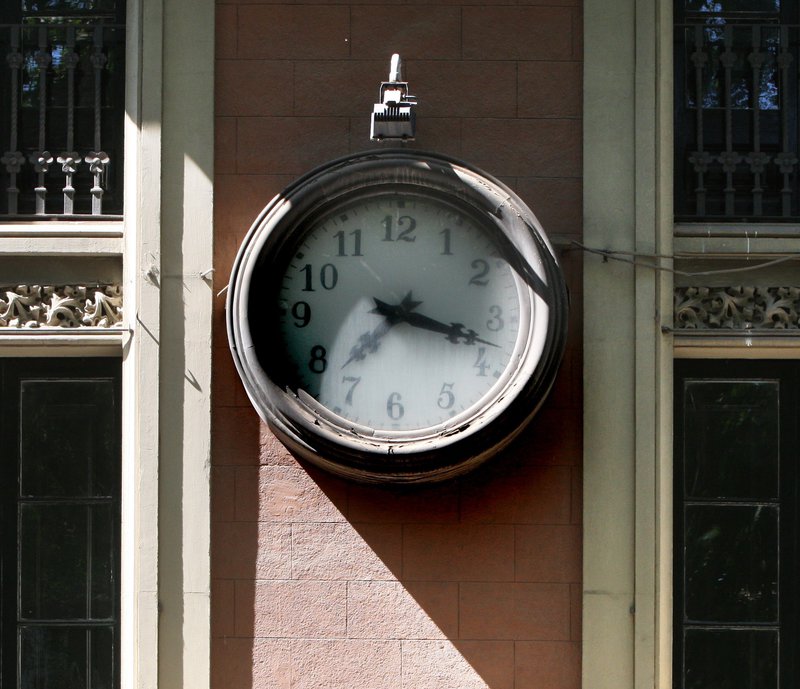Time for a change
Timetables in Catalonia are out of line with Europe causing stress and reducing performance and productivity
Recovering the two hours that Catalonia is out of sync with the rest of the world is the proposal put forward last month by a special parliamentary committee. In practice, this would mean changing timetables so that, for example, people would eat their evening meal at 6pm rather than 8pm. A timetable change would also help raise productivity, as well as bringing the country into line with GMT, as is appropriate for its geographic location.
The Comissió d'Estudi de la Reforma Horària del Parlament de Catalunya was set up after pressure from civil groups campaigning for a reform in the country's timetable, with the aim of harmonising work and personal life. In April, the committee presented its findings to the Catalan parliament.
For the committee, the key area of contention in our daily timetable is the length of lunchtime, which extends the working day into late evening, something that results in “fewer hours of sleep and an increase in stress levels” that leads to “a worsening of the population's health and a decline in performance at school and work”. Thus, the committee proposes “making society aware of the opportunity to progress in rationalising and making working timetables more flexible and, at the same time, including it in the political agenda.”
Zero hour
The best strategy for fundamentally changing the country's timetable should be done, says the committee, in one go from a zero hour, because it would be a change “that cannot be introduced progressively nor via a pilot project”. Catalonia's long, rigid work timetable makes family life more difficult, concludes the committee, with the consequence that children's timetables are also longer, extended as they are with after-school activities (“something that places a load on them that is above what is considered ideal for their health and wellbeing”). Thus the committee suggests “seriously studying the possibility of a timetable law, which brings together the different impact measures and, specifically, the regulation of the timetable change aimed at bringing meal times forward.”
In the sphere of work, the proposal suggests re-negotiating collective agreements so that they include specific clauses safeguarding the rationalisation of working timetables. Different experts in the field believe that long days reduce the productivity of people at work and increase physical and psycho-social risks. They also call for conciliation policies that “are a profitable investment that avoids other significant and damaging costs”.
Specific cases
Currently, the majority of timetable measures and conciliation implemented are aimed at specific or unusual aspects of life and not as a general everyday necessity.
In this context, the committee points to employment measures affecting business (mostly small and medium-sized companies) to aid access to such things as permits, those aimed at making starting and finishing times at work more flexible, and the change to an intensive timetable during the summer months. Consequently, Spain has the lowest rates of telecommuting in Europe, while the committee also warns about the overuse of new technology, such as constant mobile connections that cause people to dedicate even more time to work.
What's more, the committee identifies variation in how time applies to men and women, with the former spending more time at work and the latter on domestic tasks. One consequence of women's overburdened timetables is a negative effect on birth rates, which in Catalonia is one of the lowest in Europe at 1.32 children.

